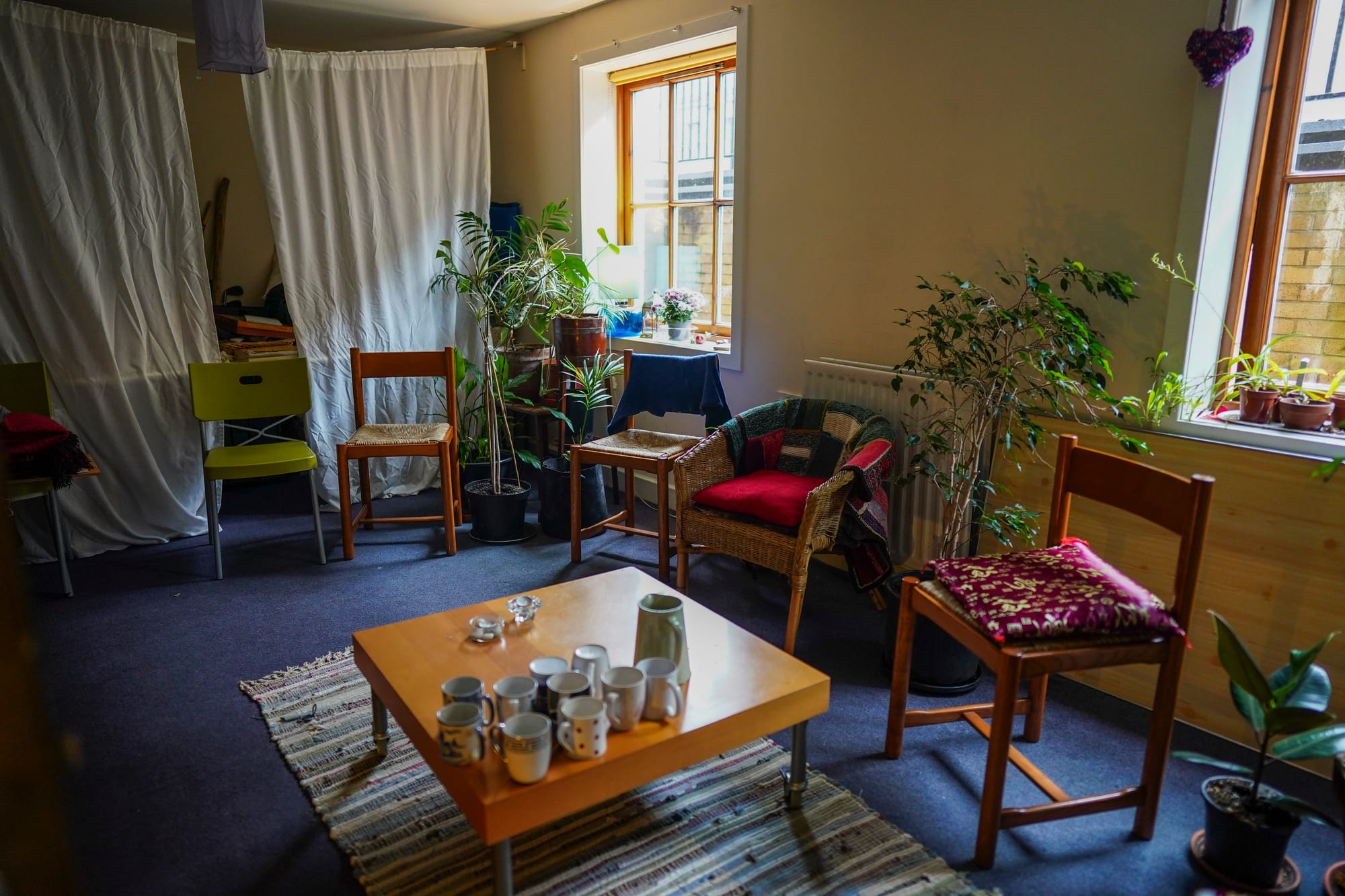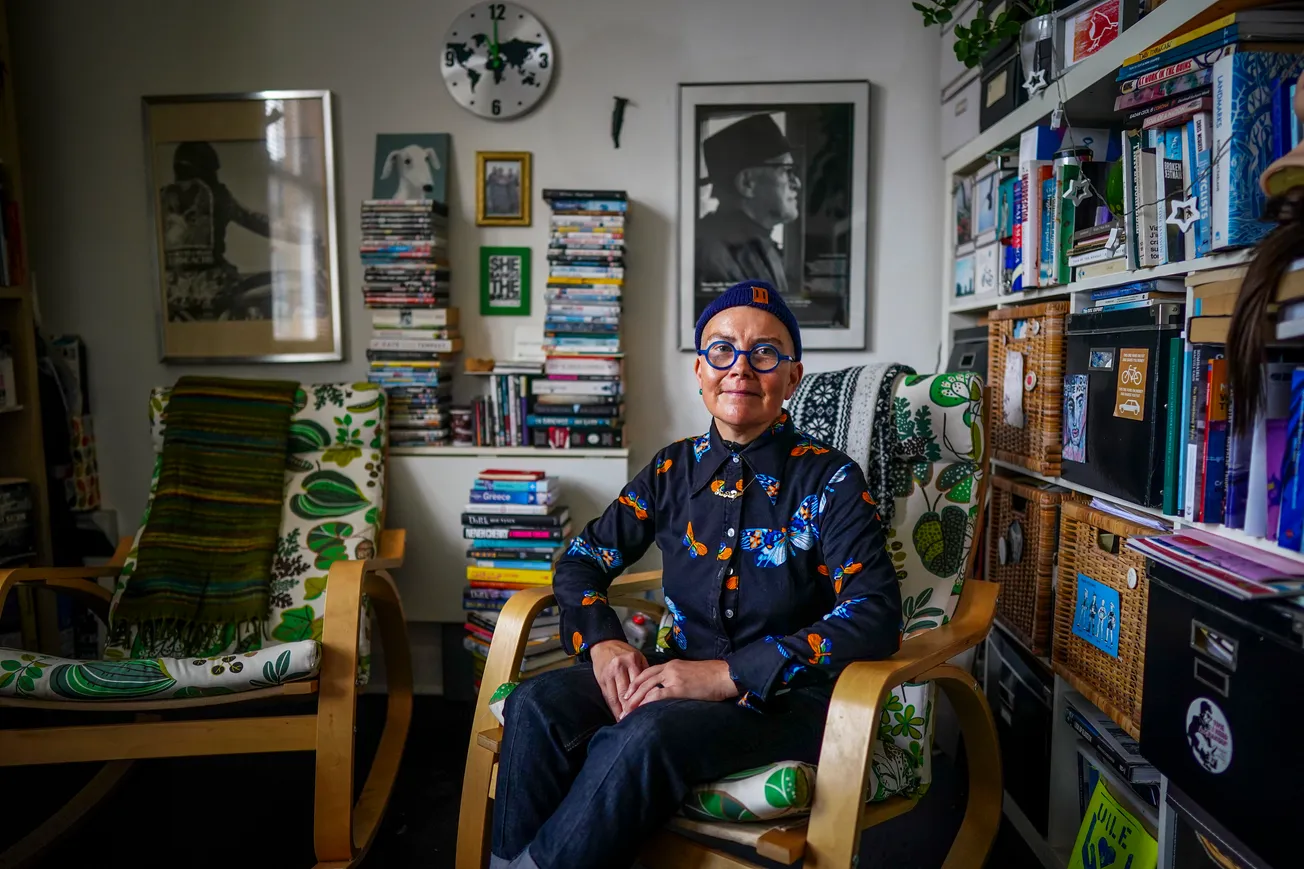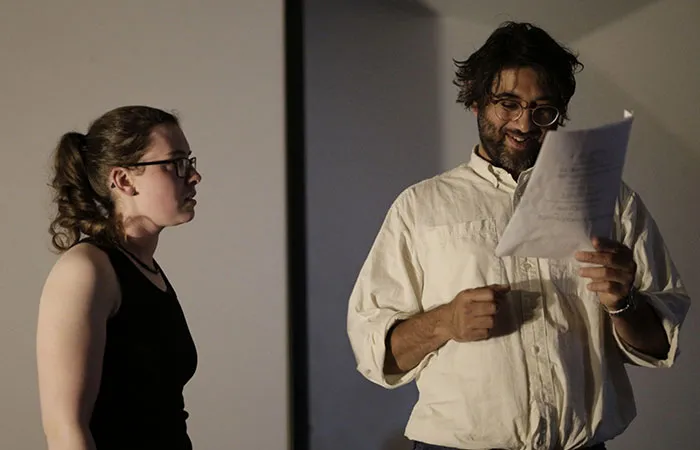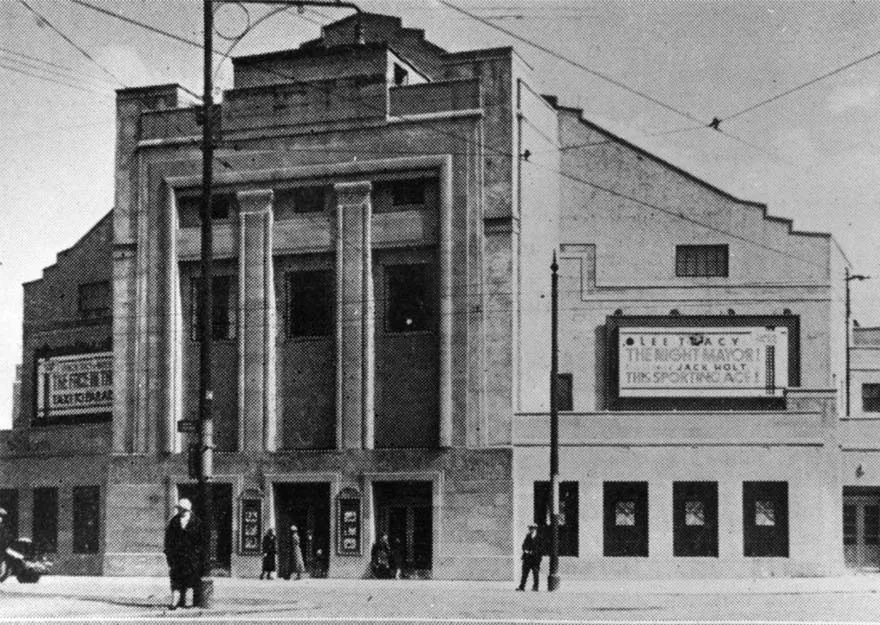It’s a Tuesday afternoon in late September and Carnarvon Street in Woodlands is quiet. A trio of students amble past me, discussing their plans for the evening, and an old man smiles as his spaniel stops to give me a sniff. Across the road, a plasterer on a cigarette break leans against a fence, tinny American voices leaking softly from his phone as he scrolls. This tenement-lined, west end street looks like any other, sleepy and unassuming — until I press the buzzer at number 35.
Inside, I find about a dozen women — and two excited dogs — crammed into a room, some perched on sofa arms or cross-legged on the floor while others load up plates from an overflowing table. There’s laughter in the air, steam rushing from the kettle, and two kinds of soup on the stove; a bowl of the spiced lentil one is thrust into my hand before I’ve even found a seat. This is a feast to celebrate Michaelmas, a festival which traditionally marks the end of harvest season. But we’re not in a community centre or a church hall, we’re in the front room of a ground floor tenement flat.
“It’s not like this every week,” laughs Laura Anderson, who has lived in this flat for 15 years. Usually, Tuesday afternoons are for her Knit and Natter group. But it’s also not that unusual for 35 Carnarvon Street, which began its life as a queer and trans-inclusive women’s housing cooperative at the heart of Glasgow’s feminist scene the best part of 40 years ago.

I’m not here for the soup, though, but because I’ve been told that, despite the festivities, this community is anxious about its future. A succession of changes over the past fifteen years have already seen its members fight to protect their way of life and their sisterhood. But this summer came the biggest change yet: the first lease in 35 Carnarvon Street’s history to be signed over to a man.
Now, residents fear not only that the community they’ve built could be permanently deconstructed, but that there are dwindling opportunities full stop for alternative ways of living within Scotland’s commercialised housing sector. Can the 1980s feminist co-housing dream survive in 2025 Glasgow?
Hi, welcome to The Bell. This isn't the first time we've dug into the challenges alternative Glasgow communities face. Eve also looked into Flourish House's future after it had its funding cut. More recently, and perhaps less alternative, Calum revealed the payday more and more bowling clubs opt for as their membership dwindles.
To make sure you never miss another edition, sign up to our mailing list and get two totally free emails from The Bell every week: a Monday briefing, full of everything you need to know about that’s going on in the city; and an in-depth weekend piece.
No gimmicks: just click the button below and get our unique brand of local journalism straight to your inbox.
Glasgow deserves great journalism. You can help make it happen.
You're halfway there, the rest of the story is behind this paywall. Join the Bell for full access to local news that matters, just £8.99 for the first 3 months.
SubscribeAlready have an account? Sign In






